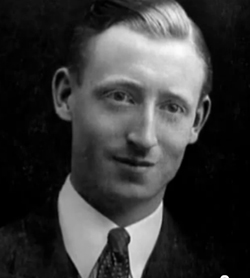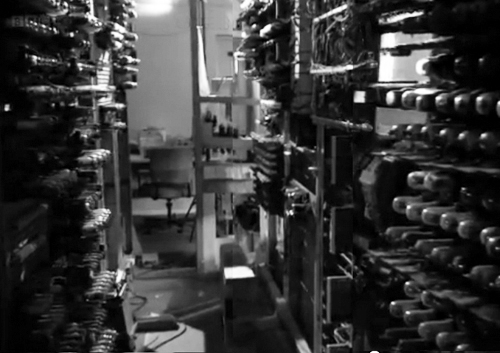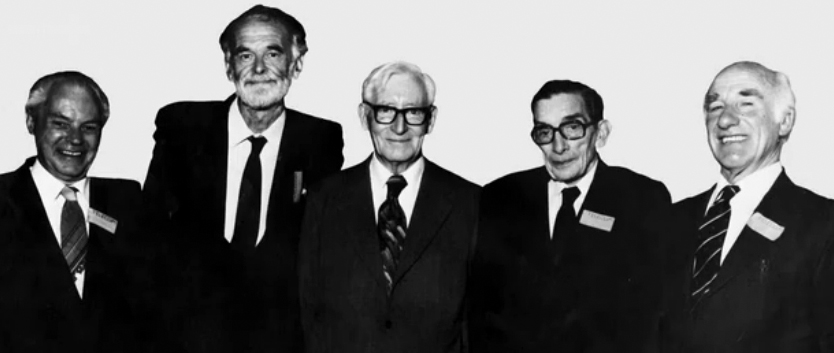April 2nd 2021
Flowers
(to reiterate) A week, maybe ten days ago, came the news that Alan Turning had, at last, made it to institutional recognition by appearing on the fifty pound banknote. Alan first came to my attention from watching Derek Jacobi in the aptly named Breaking the Code, a 1996 TV film (after Hugh Whitemore's 1986 play)—far lower-keyed and far superior to that 'on steroids' The Imitation Game; a film I won't comment on. Try to watch it—Breaking the Code, that is. Turing's honour was deserved albeit belated, but bear in mind, it took Isacc Newton three hundred years to get on the money and, in addition to everything else, he was Master of the Royal Mint for thirty years.
But I don't want to talk about Turing or Newton, they're already talked about, what I want is to talk about Tommy.
(now continue) Tommy Flowers, I'd like to help unforget him. He was the son of a London bricklayer and earned his degree in engineering by going to evening classes.
It was thanks to Alan Turing that Tommy, a Post Office engineer, found his way to Bletchley Park, the renown British code-breaking centre of WWII. Turing had been called in to break the Enigma code at a time when a much harder code had just been broken by Canadian, Bill Tutte. Penetrating this code generated by a Lorentz teletype machine was punishingly intricate and laboriously slow work. Attempts to solve the problem with a machine did not go well. The machine, nick-named Heath Robinson (who specialialised in drawing hilarious overblown contraptions) was almost purely mechanical and continually breaking down. When Tommy said it would make more sense to scrap it and construct an electronic apparatus, he did not win support. So back he went to the Post Office and built it himself. The first time Bletchley used it, it worked perfectly. It did the second time as well. And the third time and subsequently thereafter. This apparatus, completed by December 1943, became known as Colossus1. Tommy had designed and built the world's very first programmable electronic computer!
After the war, he was awarded a grant of £1,000 by the British Government, you could buy a couple of houses with that back then. Generous, you might say, except it didn't even cover the money he had personally layed out bringing Colossus into being. Adding to this injustice, Tommy was further denied a loan by the Bank of England to build a machine of this type because the bankers didn't believe it could be made to work. You see, the Official Secrets Act forbade him from revealing that he had already built two highly successful electronic machines that, as we all well know by now, played such a central role in winning the war against Hitler. The award he shared with his colleagues—seen below—who had assisted him in the effort. The world's first computers were broken up at the end of the war, presumably for reasons of security(...) and, final irony, Tommy, like Turing, was never invited to become a Fellow of the Royal Society.
From the generous sharing of his award, it is apparent that Tommy saw his Colossus as a joint achievement, a team effort as we're wont to say these days. Bletchly park was irrefutably a collective of geniuses. To single out just one is, to my mind, sloppy history—fiction, even—for the sake of drama. Turing's renown is well-deserved, but it does owe something to fashionability linked as it is with the emergence of gay interests. Then again, to let this overshadow the endeavours of all the other contributors is convenient for the saving of time and space, innit?
I said I wouldn't comment on 'The Imitation Game' movie and I won't. But I will let another comment eloquently for me:—
"If you are unaware of the stories of Enigma and Turing, you may find this a quite interesting film to watch. If you are aware of these stories I think you may find it difficult to swallow the gross misrepresentations of both. I consider that filmmakers, when depicting real people or events, have a responsibility to tell the truth and not distort things simply for dramatic effect. When this responsibility is ignored the filmmakers have decided to, in effect, spread lies in the name of entertainment. 'The Imitation Game' may be entertaining but it makes this dismal mistake and cannot be recommended."
Qrobur, IMDBb member since Mar.2014
A mistake that 'Breaking the Code' did not make. Last word: Tommy Flowers is garnering some recognition of late, but I'm taking bets neither he nor Bill Tutte will ever make it onto the money.




